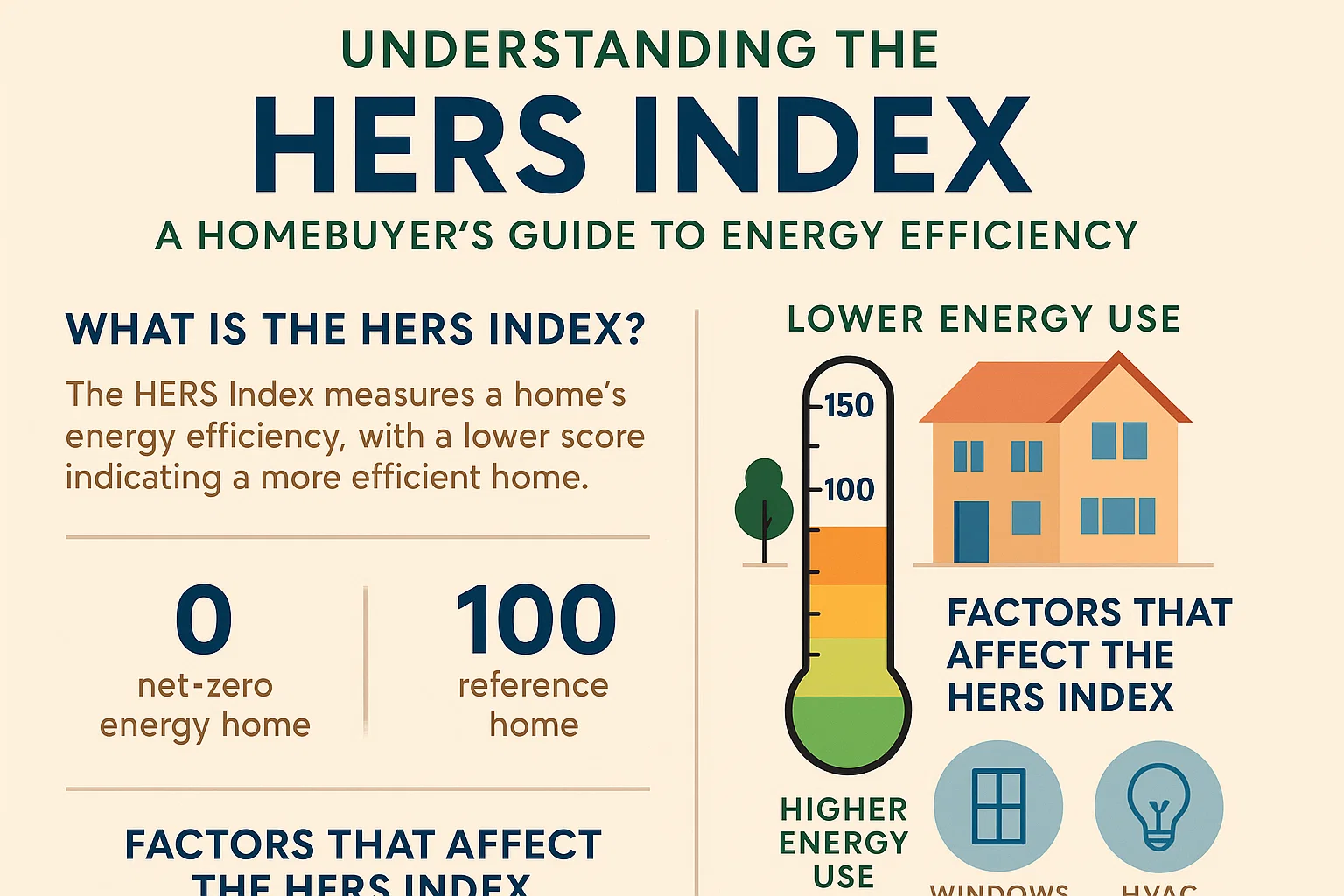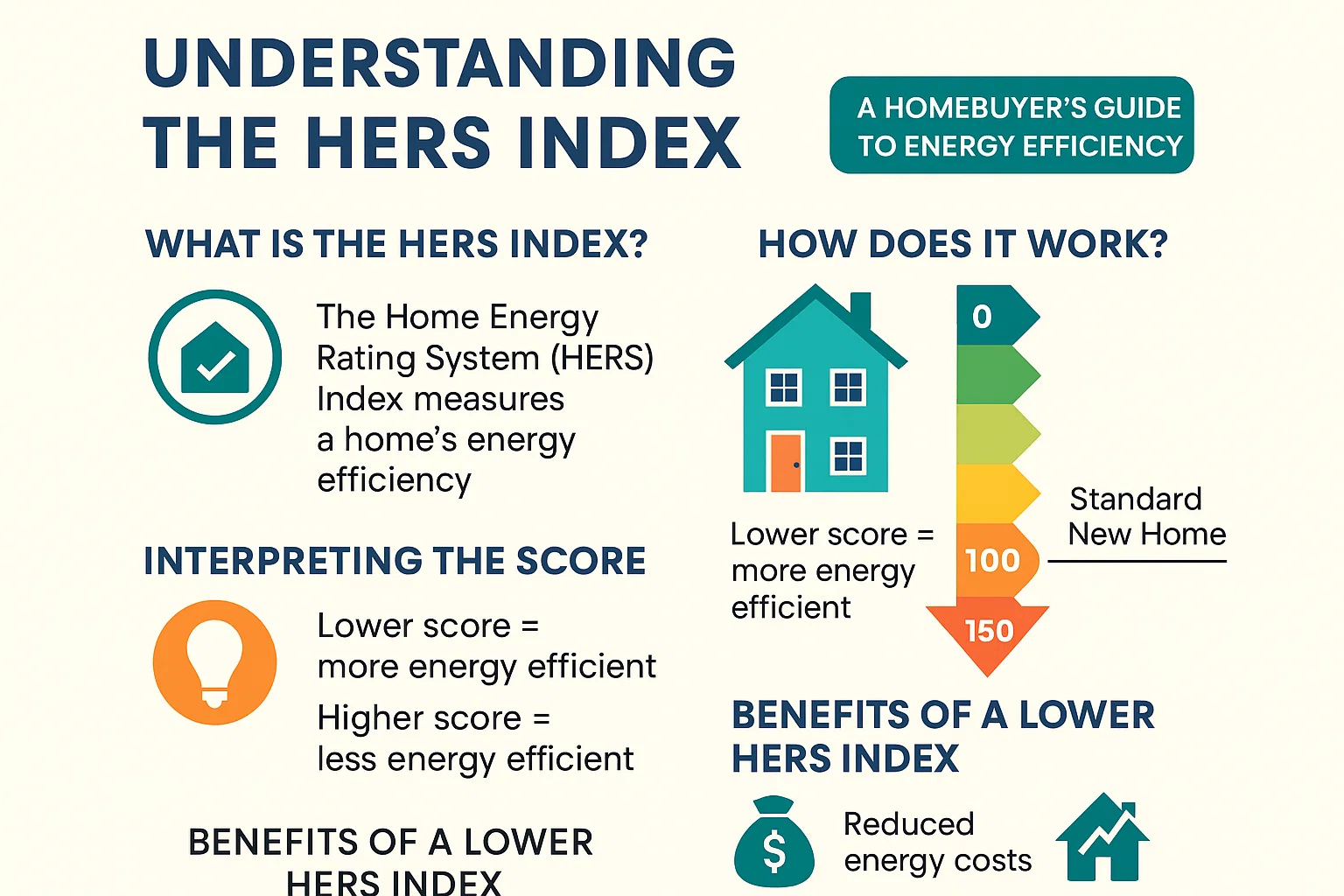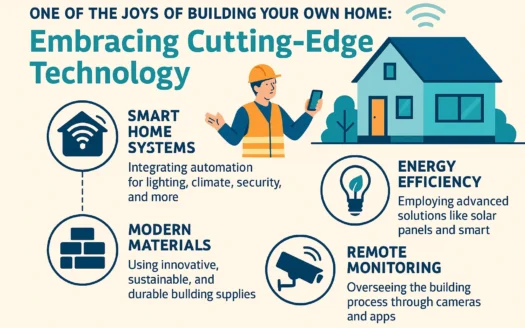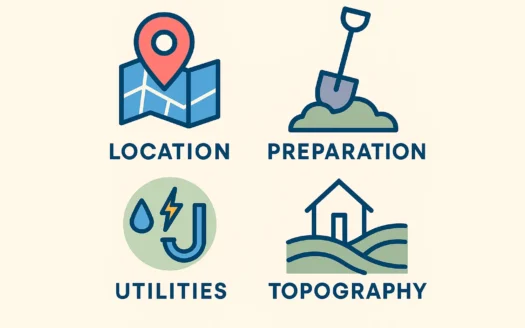Understanding the HERS Index: A Homebuyer’s Guide to Energy Efficiency

Understanding the HERS Index: A Homebuyer’s Guide to Energy Efficiency
What Is the HERS Index?
The Home Energy Rating System (HERS®) Index is a nationally recognized measurement tool for evaluating a home’s energy efficiency. Developed to help homeowners and buyers assess performance, it assigns a score between 0 and 150. The lower the score, the more energy-efficient the home.
How Does the HERS Index Work?
A certified HERS® Rater evaluates a home’s energy features, such as insulation, HVAC systems, windows, and air leakage. The results are compared to a standard reference home (scored at 100). Each point difference represents a 1% change in energy efficiency:
- A score of 60 means the home is 40% more efficient than the reference home.
- A score of 0 indicates a Net Zero Energy Home, which generates as much energy as it consumes (often via solar panels).
- The average resale home in the U.S. scores 130, making it 30% less efficient than the reference home.
Key Factors in a HERS Rating
Certified Raters evaluate multiple components to determine a home’s score, including:
- Wall and attic insulation quality
- Window efficiency and placement
- Heating and cooling system performance
- Air sealing and ductwork integrity
- Use of renewable energy systems
Benefits of a Low HERS Score
Homes with lower ratings offer significant advantages:
- Lower utility bills due to reduced energy waste
- Enhanced comfort with consistent indoor temperatures
- Reduced environmental impact through efficient resource use
- Higher resale value as buyers prioritize efficiency
Projected vs. Confirmed Ratings
Builders often provide Projected HERS Ratings based on pre-construction plans. These estimates use specialized software and design specifications but may change during construction. After completion, a certified Rater conducts on-site tests to issue a Confirmed Rating, ensuring compliance with industry standards.
Next Steps for Homebuyers
When exploring energy-efficient homes, ask builders or sellers for the confirmed HERS Rating. For deeper insights, consult a certified HERS Rater to evaluate a property’s performance. Prioritizing energy efficiency can lead to long-term savings, comfort, and sustainability.




